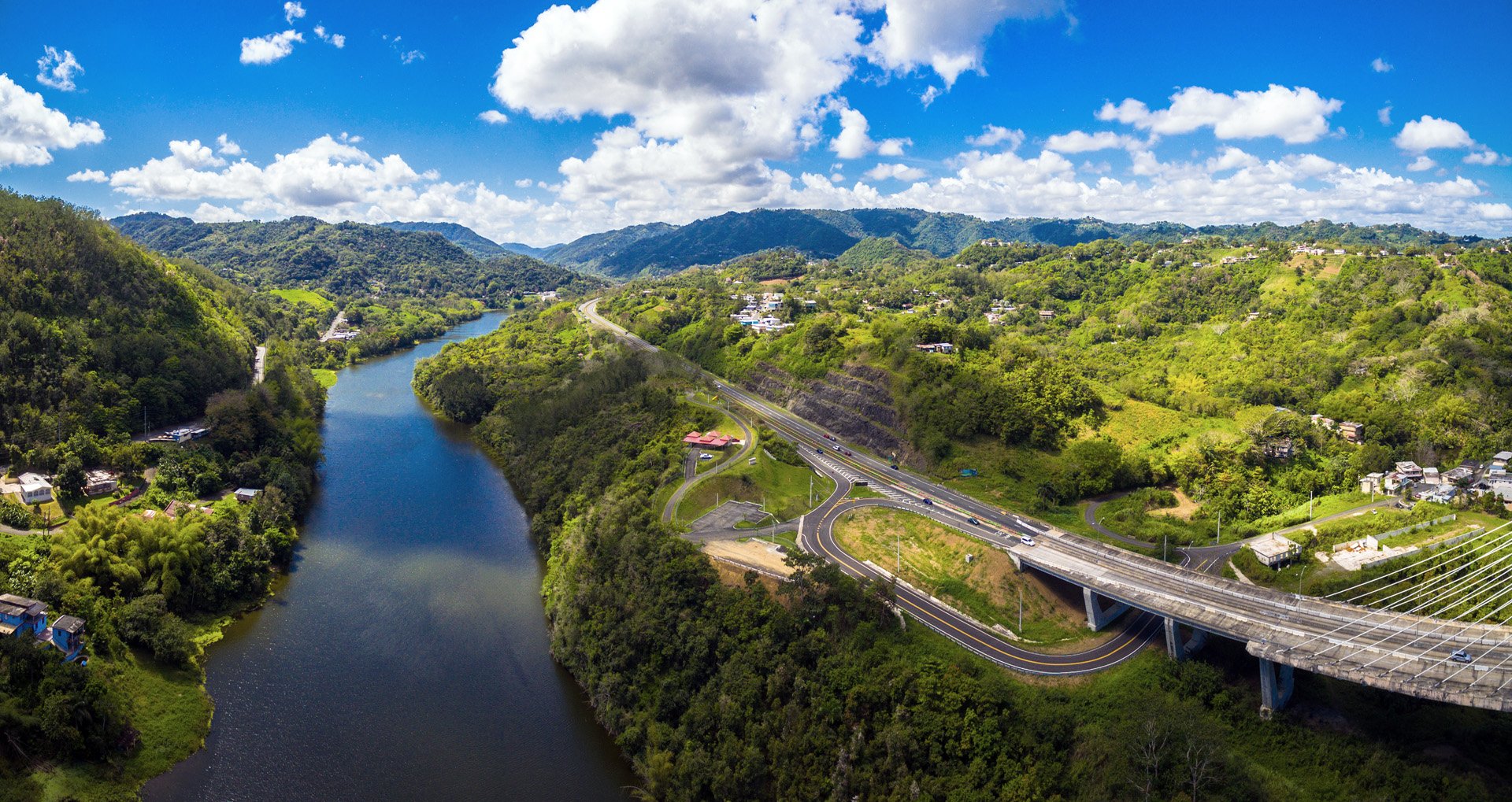Puerto Rico
Integrated Solid Waste Plan
The Department of Natural and Environmental Resources (DNER) intends to create an Integrated Solid Waste Management Plan (ISWMP) to provide a framework for selecting new solid waste infrastructure. This plan will aim to identify program and infrastructure improvements that reduce operational costs while pursuing efficient island-wide management of solid waste in Puerto Rico. Goals of the ISWMP include:
Increasing the rate of diversion from landfills through methods such as recycling, composting, and source reduction.
Enhance solid waste collection, processing, and disposal systems to protect the environment and public health by developing efficient solid waste management facilities and infrastructure.
Incorporating prudent circular economy and sustainable materials management practices.
The ISWMP is currently under development exploring these options and more. Please see our public engagement update section for information on how you can have your voice heard in the development of this critical plan!
The ISWMP will be used as a road map for investing in new solid waste infrastructure, which may include:
Solid waste transfer stations
Materials recovery facilities for recycling
Composting infrastructure
Other alternative waste management solutions
Table of Contents

Public Survey
The Public Survey is now closed. Thank you to everyone who participated! The results will be available soon.
We value your input and encourage you to continue to share any additional feedback, comments, or questions through the Comments & Feedback page.
Solid Waste Resources & Data
Solid Waste Characterization Study Report

Milestones
50% of Draft Plan Completed
Feb 14, 2025
75% of Draft Plan Completed
Mar 28, 2025
95% of Draft Plan Completed
May 1, 2025
Public Comment Period on the Draft Plan
May 1-30, 2025
Final Integrated Solid Waste Management Plan
June 27, 2025
FAQs
What is Solid Waste?
Solid Waste is any garbage or refuse, sludge from a wastewater treatment plant, water supply treatment plant, or air pollution control facility and other discarded material, including solid, liquid, semisolid or contained gaseous material, resulting from industrial, commercial, mining, and agricultural operations, and from community activities. Nearly everything we do leaves behind some kind of waste. More details can be found here.
How is This Study Funded?
The US EPA awarded Puerto Rico Department of Natural and Environmental Resources (DNER) fundings to assist this study through grants for hazardous and solid waste management financial assistance. More details can be found here.
What is a Landfill?
Landfills are well-engineered and managed facilities for the disposal of solid waste. They are located, designed, operated, and monitored to ensure compliance with federal regulations. These landfills are lined disposal sites or waste containment facilities designed to minimize environmental impact. They are typically equipped with protective liners at the bottom and other engineered systems to prevent contaminants (such as liquids and gases) from escaping into the environment, whether into the atmosphere, groundwater, or surface water. More information can be found here.
What is Recycling?
Recycling is the process of collecting and transforming materials that would otherwise be discarded as trash in a landfill into new, reusable products. Recycling can benefit your community, the economy, and the environment. More details can be found here.
What is Integrated Solid Waste Management?
Integrated Solid Waste Management (ISWM) is a comprehensive waste prevention, recycling, composting, and disposal program. An effective ISWM system considers how to prevent, recycle, and manage solid waste in ways that most effectively protect human health and the environment. More details can be found here.
What is a Transfer Station?
Transfer station temporarily holds municipal solid waste from collection vehicles before reloading it onto larger transport vehicles for disposal. They reduce transportation costs and vehicle trips to distant disposal sites, resulting in efficient solid waste management that benefits communities.
What is Waste-To-Energy (WTE)?
WTE is the process of recovering energy from non-recyclable waste and converting it into usable heat, electricity, or fuel through various methods, including combustion, gasification, pyrolysis, anaerobic digestion, and landfill gas recovery. Energy recovery ranks below source reduction and recycling/reuse but above treatment and disposal. Currently, there are 75 facilities in the United States that recover energy from the combustion of municipal solid waste, located in 25 states, primarily in the Northeast. A new facility was built in Palm Beach County, Florida, in 2015. More details can be found here.
How Will This Plan Impact Residents?
This ISWMP will develop and recommend the most efficient and cost-effective solid waste implementation strategies designed to address the adequate management of the waste stream on the Island for the next 30 years. It will positively impact services available to residents, such as residential convenience centers, solid waste, trash and recycling pick-up, and food scrap drop-off. Additionally, the plan will include strategies to reduce and divert waste, decrease illegal dumping and litter, manage solid waste processing and disposal facilities, and sustain solid waste operations, thereby improving the cleanliness and sustainability of Puerto Rico.
What is Circular Economy?
A circular economy is one in which all consumable materials are reused or recycled, ensuring that nothing goes “to waste”. This model extends the life cycle of a materials through leasing, reusing, repairing, refurbishing, and recycling , thereby promoting minimal waste generation. More information can be found here.
What is Composting?
Composting is the natural process of recycling organic materials into a soil amendment that can be used to build soil health and provide nutrients to plants. Organic (carbon-based) materials include grass clippings, leaves, yard and tree trimmings, and food scraps. Food scraps and yard waste currently make up 20 to 30 percent of what we throw away. More details can be found here.
Comments & Feedback
Your feedback is important to us. If you would like to provide feedback via email, please submit the form below.
* Required




